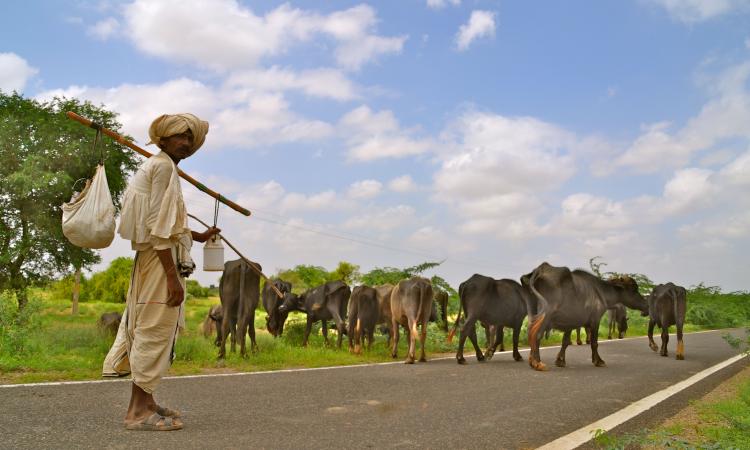
For many in Rapar taluka of Kutch, migration was a way of life due to the absence of rainfall; they went in search of greener pastures. But when the people realised their collective potential and how they could use it to resolve water scarcity in their villages, there was no stopping them ,and the compulsion to migrate reduced.
The following videos show how Samerth Trust, an organization based in Ahmedabad has worked with communities in 20 Gram Panchayats in Rapar block, Kutch to achieve water security in the arid region. Along with that, it has also initiated water quality training with communities as well as training on menstrual hygiene management with young girls to instill better hygiene practices among them. With this was also felt the need to make other important information such as Government schemes and provisions accessible to these far off villages through local information centres.
Video 1: The community leverages government funds
Watch how locals in Rapar with the help of Samerth Trust leveraged MGNREGS funds to create water structures in their villages. Not only did this help reduce migration in the area, but also develop resources in these villages.
Video 2: Creating water assets
Watch video to find out how local youth created ponds and wells in water-stressed villages of Rapar block, Kutch using geohydrological techniques. The team from Samerth Trust along with local village members underwent trainings on geohydrology from Arid Communities and Technologies (ACT, Bhuj) and applied this knowledge to create water assets for their villages by leveraging funds from MGNREGS.
Video 3: Information centres at Rapar
In a bid to bring water security to the people in the villages of Rapar, it was felt that the people were unaware of the various Government schemes and programmes and most importantly, their entitlements. Therefore, Samerth created Information Centres in different villages of Rapar to serve as a single-window facility to receive any information about Government schemes and programmes and apply for the same. These information centres are run by the local youth and have helped many receive their entitlements. Due to the guidance from the Information Centres, villagers also got their job cards made and in turn 622 families were able to generate 74,640 person days under MGNREGS to create water-based assets.
Video 4: Water quality ensured
While creating water assets in Rapar's villages was crucial, it was equally important to ensure the quality of this water. Samerth Trust realised this and has been regularly testing water samples for their quality. Along with that, it has also conducted training on various aspects of water quality in the villages, and local techniques of keeping water clean and potable. Watch how this has fared in reducing the incidence of water-borne diseases in these villages.
Video 5: Menstrual hygiene training
Training on menstrual hygiene was provided to adolescent girls in schools to help them understand and overcome certain age-old taboos/superstitions regarding menstruation, and instill better hygiene practices. The training was carried out by Samerth Trust with the support of local PHC nurses and Anganwadi workers.